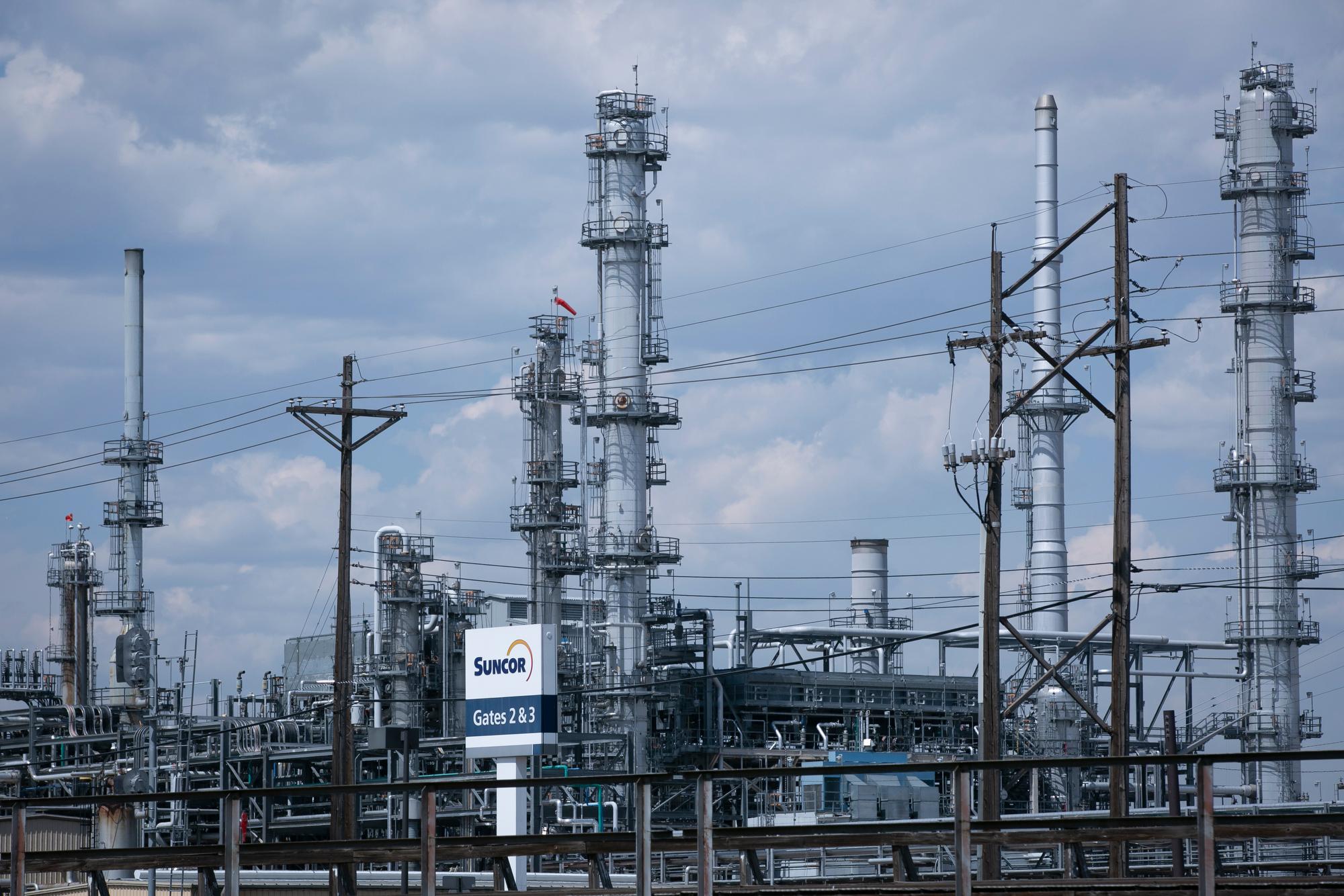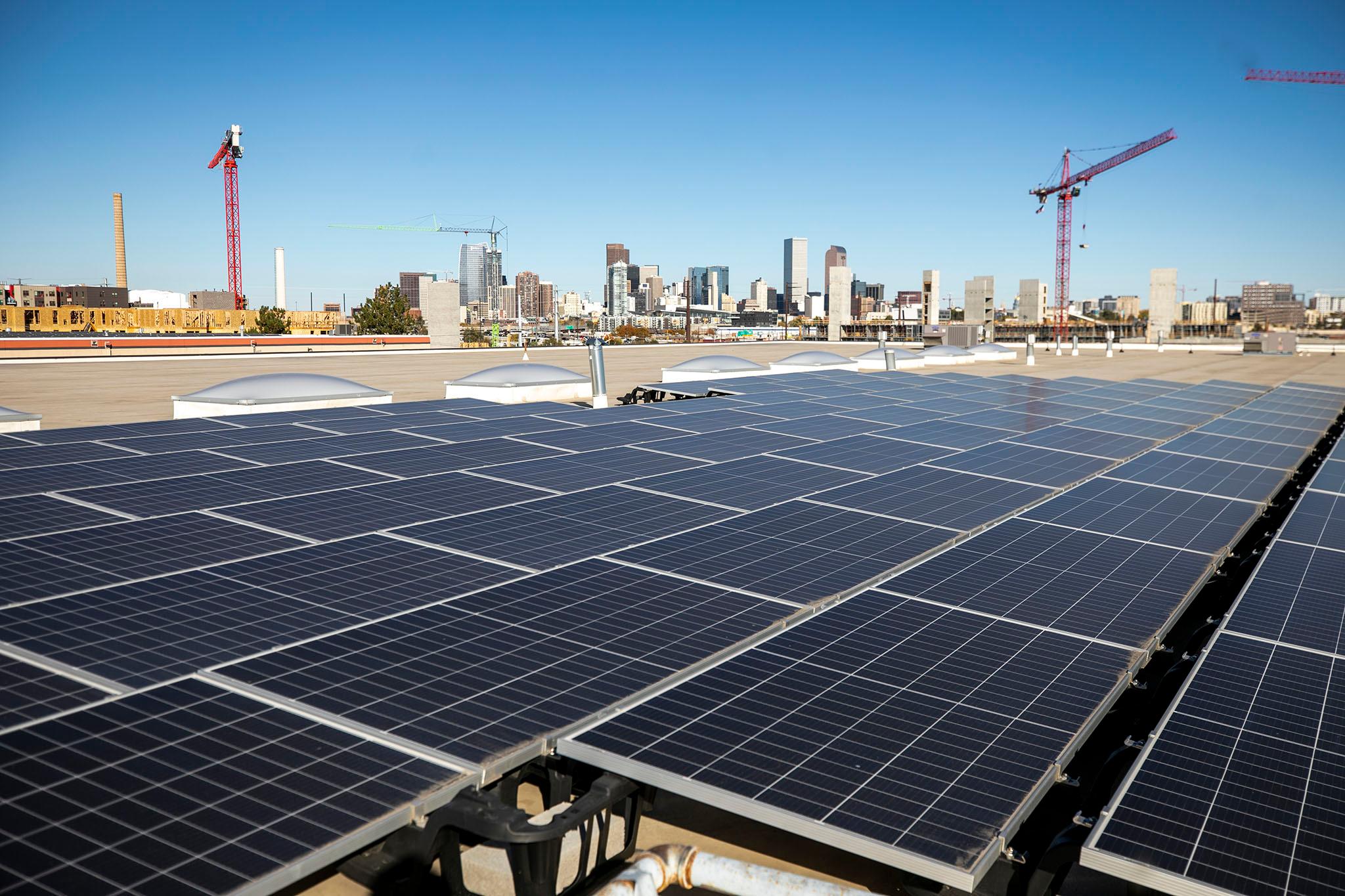
Suncor Energy has agreed to pay $10.5 million to settle a litany of pollution violations at its refinery in Commerce City as part of what Colorado air regulators say is the largest penalty ever levied against a single facility.
The Colorado Air Pollution Control Division announced the penalty package Monday. It holds the Canadian oil and gas giant responsible for hundreds of unpermitted air releases at the refinery between July 2019 and June 2021, including excessive sulfur dioxide, carbon monoxide, hydrogen sulfide, and other dangerous gases.
State regulators say many of those events are related to power failures at the facility.
The settlement requires Suncor Energy to spend $8 million on projects to improve power reliability, which the company must detail and submit to the state by July 1. All improvements must be completed by the end of 2026.
The company will pay another $2.5 million in direct penalties. The state will set aside $1.3 million to fund projects that benefit communities directly affected by air and water pollution. The remainder will go toward the state’s general fund and the U.S. Environmental Protection Agency.
“The community should feel that we are both holding them accountable and addressing and avoiding future additional impacts,” said Trisha Oeth, the director of environmental health and protection of the Colorado Department of Public Health and Environment.
Leithan Slade, a Suncor Energy spokesperson, said the company is committed to meeting any regulatory requirements and has already found ways to cut pollution from the refinery. For evidence, he said the duration of excessive emissions releases dropped 26 percent from 2022 to 2023.
The state last reached a comprehensive settlement over the company’s air pollution violations in 2020. The $9 million was the largest penalty the state had issued at the time, and it included a similar split between investments in refinery improvements and community projects.
Oeth acknowledged the penalties announced Monday don’t cover problems at the refinery that occurred after the summer of 2021. That includes a major malfunction during a cold snap at the end of 2022, which resulted in a fire that injured two employees and triggered a severe series of air pollution violations. Suncor Energy shut down the refinery for more than three months for repairs.
Oeth said the state is investigating and considering additional penalties related to those malfunctions but didn’t offer a timeline.
“It is our priority to act as quickly as we can, but also to get it right and make sure that we're doing our due diligence,” Oeth said.
Environmental advocates welcomed the latest actions but criticized the state for taking so long to penalize the company.
Ian Cogill, an attorney at Earthjustice, noted the latest settlement covers exceedances that took place more than four years ago. He said residents living near the refinery shouldn’t have to wait so long for accountability, and the high inflation rate during the delay weakens the financial weight of the penalty.
“A dollar is just not worth nearly as much as it was several years ago,” Cogill said. “That’s why it’s almost always in a company’s interest to defer paying.”
Regulators also announced a second settlement that requires more comprehensive air monitoring around the facility.
The monitoring agreement will likely end a protracted legal dispute between regulators and the company. A 2021 state law required Suncor Energy to set up a new fenceline monitoring system and alert the public whenever it detected releases of dangerous air toxins from the facility, Colorado’s only oil and gas refinery.
State regulators later rejected the company's initial plan, demanding a more comprehensive system capable of 24-hour continuous air monitoring and lower thresholds to trigger public alerts. Suncor Energy filed a lawsuit claiming its original plan met its legal obligations under Colorado’s new state law.
Under the terms of the new monitoring agreement with Suncor Energy, Michael Ogletree, the director of the Colorado Air Quality Control Division, said refinery operators will double the number of sensors proposed in its original plan and set lower pollution thresholds to trigger public alerts.
“This is another tool we’ll have in place so the community will be able to protect themselves from poor air quality,” Ogletree said.
The new monitoring agreement requires Suncor Energy to have its sensor network up and running by the end of the year, Ogletree said.
The state plans to submit the settlement to the court overseeing the lawsuit on Monday.
Editor's note: This story has been updated to include a comment from Suncor Energy.
- After declining an EPA grant, a Latino-led community group ends air monitoring project near Suncor Energy
- Suncor has more pollution problems than similar U.S. refineries, new EPA report finds
- EPA rejects parts of Colorado’s air quality permit for Suncor Energy refinery
- Benzene pollution could be another consequence of recent malfunctions at Suncor Energy
- As Suncor restarts its Commerce City refinery, neighbors demand a plan to prevent future pollution incidents
- Two Suncor employees were burned in a flash fire at the Commerce City refinery. That incident and others are raising questions about worker safety








